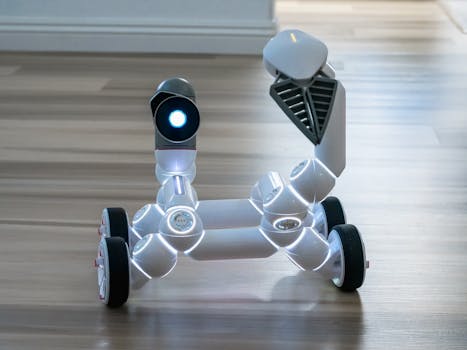
Smart Homes 2025: The Rise of AI-Driven Devices
Smart Homes 2025: The Rise of AI-Driven Devices is an exciting topic that has been gaining momentum in recent years. As we approach the year 2025, it’s clear that smart homes are becoming increasingly popular, and AI-driven devices are playing a significant role in this trend. In this article, we’ll explore the world of smart homes and AI-driven devices, and what we can expect from this technology in the future.
Introduction to Smart Homes
A smart home is a residence that uses advanced technology to automate and control various aspects of the home, such as lighting, temperature, security, and entertainment. Smart homes use a network of devices, sensors, and controllers to create a integrated system that can be controlled remotely or automatically. The goal of a smart home is to provide a convenient, comfortable, and secure living environment for its occupants.
The Role of AI in Smart Homes
Artificial intelligence (AI) is a key component of smart homes, as it enables devices to learn and adapt to the habits and preferences of the occupants. AI-driven devices can analyze data from various sources, such as sensors and user input, to make decisions and take actions. For example, an AI-powered thermostat can learn the occupant’s schedule and preferences to optimize the temperature and energy consumption. AI can also be used to control and coordinate multiple devices, creating a seamless and integrated experience.
AI-Driven Devices in Smart Homes
There are many AI-driven devices available for smart homes, including:
- Virtual assistants, such as Amazon Alexa and Google Assistant, which can control and coordinate multiple devices
- Smart thermostats, such as Nest and Ecobee, which can learn and adapt to the occupant’s schedule and preferences
- Smart lighting systems, such as Philips Hue and LIFX, which can be controlled and automated based on the occupant’s activities and preferences
- Smart security systems, such as August and Ring, which can detect and respond to potential security threats
- Smart home appliances, such as smart refrigerators and washing machines, which can be controlled and automated based on the occupant’s needs and preferences
Benefits of AI-Driven Devices in Smart Homes
The benefits of AI-driven devices in smart homes are numerous, including:
- Increased convenience and comfort, as devices can be controlled and automated remotely or automatically
- Improved energy efficiency, as devices can optimize energy consumption based on the occupant’s schedule and preferences
- Enhanced security, as devices can detect and respond to potential security threats
- Increased property value, as smart homes with AI-driven devices are more attractive to buyers and renters
- Improved health and wellness, as devices can monitor and respond to the occupant’s health and wellness needs
Challenges and Limitations of AI-Driven Devices in Smart Homes
While AI-driven devices in smart homes offer many benefits, there are also challenges and limitations to consider, including:
- Cost, as AI-driven devices can be expensive to purchase and install
- Complexity, as AI-driven devices require integration and coordination with multiple devices and systems
- Security, as AI-driven devices can be vulnerable to hacking and cyber attacks
- Privacy, as AI-driven devices can collect and analyze personal data
- Interoperability, as AI-driven devices from different manufacturers may not be compatible with each other
Conclusion
In conclusion, Smart Homes 2025: The Rise of AI-Driven Devices is an exciting and rapidly evolving field that offers many benefits and opportunities for homeowners and occupants. As AI-driven devices become more advanced and integrated, we can expect to see significant improvements in convenience, comfort, energy efficiency, security, and property value. However, it’s also important to consider the challenges and limitations of AI-driven devices, such as cost, complexity, security, privacy, and interoperability. By understanding these factors, we can make informed decisions about the use of AI-driven devices in our smart homes and create a better living environment for ourselves and our loved ones.






